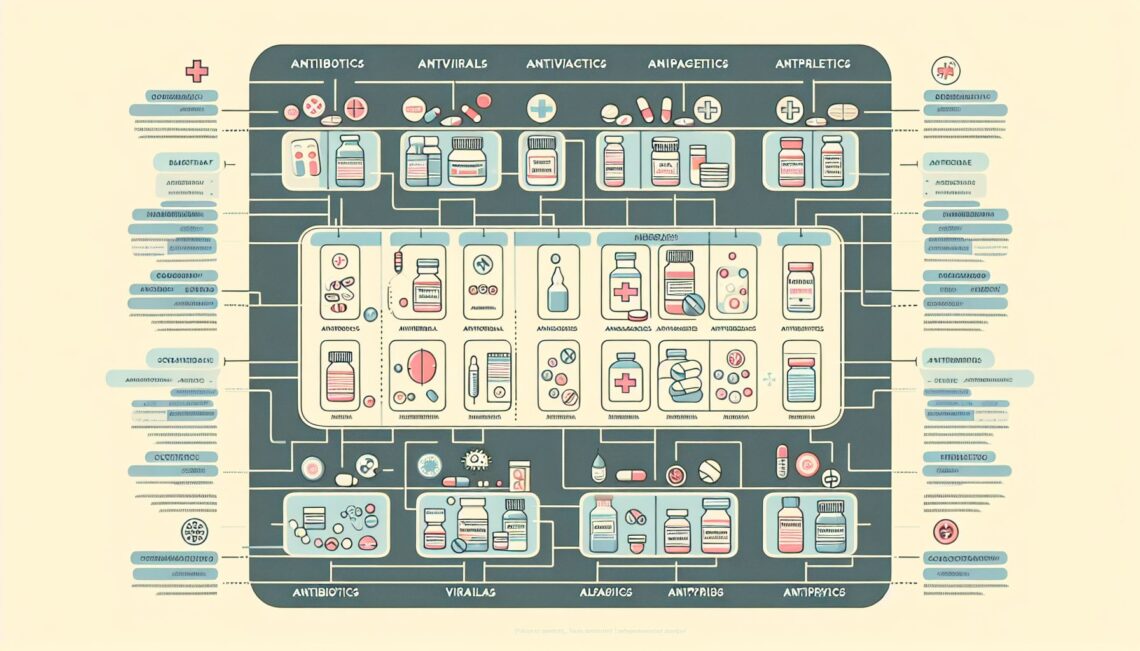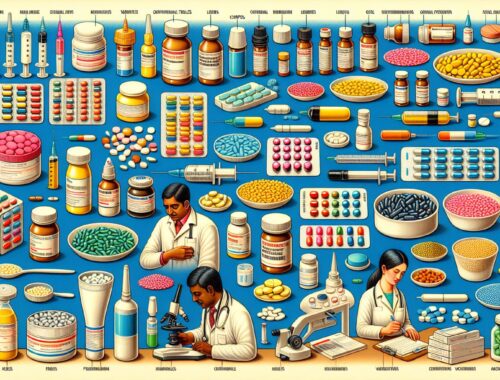
Understanding the Different Types of Medicines
Medicines come in various forms, each designed to administer treatment in a specific way depending on the condition being treated. It is important to understand the different types of medicines available to ensure proper usage and effectiveness.
Tablets and Capsules
Tablets and capsules are among the most common forms of medicines. They come in different sizes and shapes and are usually taken orally with water. Tablets can be both immediate release or extended release, providing relief over an extended period of time. Capsules, on the other hand, are typically easier to swallow and sometimes contain liquid medication.
Liquids
Liquid medicines are often prescribed for children or adults who have difficulty swallowing tablets or capsules. They are available in various forms such as syrups, solutions, and suspensions, making it easier to measure the correct dosage. Some liquid medicines may need to be shaken before use to ensure proper distribution of the medication.
Topical Medications
Topical medications are applied directly to the skin or affected area. This includes creams, gels, ointments, and patches. These medications provide localized treatment, making them ideal for conditions like skin irritations, muscle pain, and inflammatory disorders. Topical medications are absorbed through the skin and work by targeting the specific area of concern.
Inhalers
Inhalers are commonly used to deliver medications directly to the lungs, making them an effective treatment for respiratory conditions like asthma and COPD. There are different types of inhalers, including metered-dose inhalers and dry powder inhalers. These devices help deliver the medication directly to the airways, providing fast relief and reducing systemic side effects.
Injectable Medications
Injectable medications are administered through a needle and syringe, either subcutaneously, intramuscularly, or intravenously. These medications are often used when oral medications are not effective or when a rapid response is needed. Injectable medications are prescribed by healthcare professionals and should be administered by trained individuals to avoid any complications.
Conclusion
Understanding the different types of medicines available can help ensure proper usage and effectiveness. Whether you are taking tablets, applying a topical cream, or using an inhaler, it is important to follow the instructions provided by your healthcare provider. If you have any questions or concerns about your medication, be sure to consult with your doctor or pharmacist. Remember, the correct use of medicines plays a crucial role in your overall health and well-being.
By being informed about the various types of medications, you can better manage your health and make informed decisions about your treatment plan. Always consult with your healthcare provider before making any changes to your medication regimen.
You May Also Like

Exploring the Different Types of Medicines
March 21, 2024
Understanding the Different Types of Medicines
February 5, 2024

